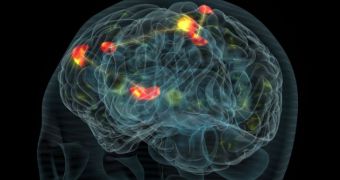Information obtained with the help of functional magnetic resonance imaging indicates that, when compared to the brains of regular folks, those belonging to children diagnosed with autism are considerably less flexible.
Otherwise put, activity patterns in certain areas of the brains of autistic kids are pretty much the same regardless of whether the children are resting or looking to solve a task at hand, Stanford University researchers say.
Looking to determine how an autistic brain differs from a healthy one, the specialists monitored activity patterns in children diagnosed with this disorder both during rest and during the performance of two distinct tasks.
Of these tasks, one boiled down to having autistic kids solve simple math problems, the researchers detail in a paper in yesterday's issue of the journal Cerebral Cortex. The other involved having autistic children look at photos of various faces.
Information resulting from these observations was then compared to data obtained while using functional magnetic resonance imaging to determine brain activity patterns in healthy children made to perform the same tasks.
The areas of the brain that the Stanford University scientists focused on while carrying out this study have been shown to play a part in decision-making processes, the ability to perform one social task or another, and to help guide behaviors by analyzing environmental cues.
It was discovered that, in the case of the 34 autistic children whose activity patterns were monitored, these areas of the brain behaved very much the same during rest and during task performance. The brains of the healthy kids, however, showed significant flexibility.
“What we found was that across a set of brain connections known to be important for switching between different tasks, children with autism showed reduced ‘brain flexibility’ compared with typically developing peers,” says study lead author Lucina Uddin.
Interestingly enough, it appears that, the more inflexible an autistic kid's brain is, the worse the repetitive and restrictive behaviors displayed by the child are bound to be. This find should help specialists gain a better understanding of this disorder.
“The fact that we can tie this neurophysiological brain-state inflexibility to behavioral inflexibility is an important finding because it gives us clues about what kinds of processes go awry in autism,” explains Vinod Menon, study senior author and professor of psychiatry and behavioral sciences at Stanford University.
“The findings may help researchers evaluate the effects of different autism therapies. Therapies that increase the brain’s flexibility at switching from rest to goal-directed behaviors may be a good target, for instance,” adds specialist Kaustubh Supekar.

 14 DAY TRIAL //
14 DAY TRIAL //